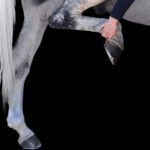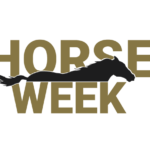This special report on the EHV outbreak in several Western states comes from The Jurga Report: Horse Headlinesblog. For the latest information on the EHV outbreak, please go to The Jurga Report.
May 15, 2011 – Over the weekend, The Jurga Report was busy gathering reports from the western United States, after a warning was issued for horses that had competed at a cutting horse event in Ogden, Utah over Mother’s Day weekend. Two horses in Colorado returned from the show and became sick, and Colorado State University issued a diagnosis of Equine Herpes Virus, Type 1, also known as the “neurologic” mutation of the common Equine Herpes Virus. One of the horses was euthanized.
But by then, cutting horses from the Utah show had dispersed all over the western United States and Canada. Saturday we reported on this blog about sick horses in California, one of whom was euthanized; no diagnosis of EHV-1 has been issued by the state, but the sick horses had been at the Utah show.
Tonight we learned of additional sickness among horses that had been at the Utah event.
The Washington State University College of Veterinary Medicine is located in Pullman, Washington, in the eastern part of that state. They are now one of the centers of interest as this cutting horse disease story is tracked through the West.
The following information has been released to the public:
“The Washington State University Veterinary Teaching Hospital is entering a period of voluntary isolation for equine and camelid patients. This is in response to a patient that was confirmed to be shedding Equine Herpes Virus type 1 (EHV-1).
“In the past week there have been two confirmed cases of EHV-1 in Colorado in horses that competed at the National Cutting Horse Association Western National Championships in Ogden, Utah. A horse admitted to the Washington State University Veterinary Teaching Hospital (VTH) for evaluation of unrelated problems was found to have competed at the show. Subsequent diagnostic testing confirmed that the horse was positive for EHV-1.
“Due to the potential for spread of the virus, access to the VTH is currently restricted. During this time, no new equine or camelid patients may be admitted to the hospital except for critical emergencies. It is expected that the period of isolation will last at least 2 weeks. There are currently no horses exhibiting signs of EHV-1 at WSU.
“Equine Herpes Virus does not affect cattle, sheep, goats, pigs or birds, and the remainder of the VTH remains open. There is no risk of transmission to people.
“We are taking every precaution to ensure the health and well-being of animals. “
Elsewhere in the Northwest, Idaho Equine Hospital in Nampa, Idaho reported on their blog, “Idaho Equine Hospital has seen 2 horses from the Ogden (Utah) show with signs of EHV 1.” (Signs of the disease are not the same as a confirmed diagnosis; at this time only Colorado and Washington have confirmed diagnoses.)
To learn more about the neurologic form of EHV, download the USDA’s EHM brochure, Equine Herpesvirus Myeloencephalopathy.
This form of EHV is not the common form of EHV. No vaccination is known to protect horses from this neurologic form of EHV. When researching EHV, look for recently published information about EHM or specifically, the neurologic form of Equine Herpesvirus Type 1.





